The SSU in Ukraine's strategy: amidst destroying bridges and drilling walls
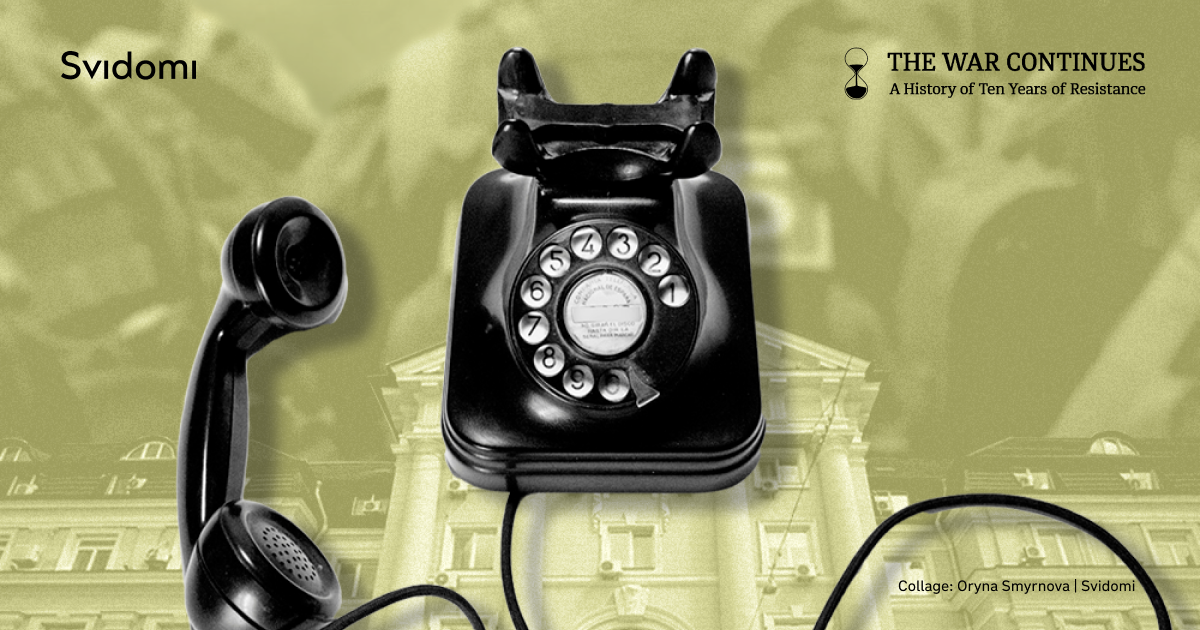
Throughout the full-scale invasion, the search query 'SSU' was most prevalent when the intelligence service managed to conduct stunning operations or detain influential politicians. But there is an exception to this rule: in early 2024, people googled 'SSU' to find out how the service was spying on investigative journalists from Bihus.Info. Svidomi recalls other examples of the SSU's past actions against Ukraine's national interests. Not to damage the image of the service but to learn lessons from mistakes.
This article was published as part of the special project 'The War Continues: A History of Ten Years of Resistance'.
"On January 27, the Security Service of Ukraine (SSU) detained five Russian Federal Security Service (FSS) officers in the Odesa region who were trying to obtain information in the military and defence sectors." No, this is not news from a month or a year ago. The events described here took place in 2010. It might have been one of the most effective operations in the history of the Ukrainian Security Service — 5 officers of the Federal Security Service were detained at one time! However, this is not all.
The situation was so unprecedented that the FSS publicly admitted its failure. Such an achievement could have convinced Western countries of the SSU's professionalism, as not all security services can name similar operations in their history. However, what happened was different: after the elections, pro-Russian authorites came to power in Ukraine.
They have once again changed Ukraine's foreign policy strategy. According to the formula of Dr. Everett Dolman, Professor of Comparative Military Studies at the United States Air Force’s Air Command and Staff College, a strategy is a plan to achieve and maintain superiority over an adversary. A single tactical victory is not enough. And whatever the shortcomings of Russia's strategy, the Kremlin has sought to maintain its superiority over Ukraine even longer.
For example, in 1992, the leaders of Ukraine and Russia signed the Almaty Declaration, putting an end to the existence of the USSR and promising not to interfere in each other's internal affairs. In 1996, the leadership of the Russian Foreign Intelligence Service ordered its subordinates "to establish operational positions on the territory of Ukraine as soon as possible to influence its sovereignty."
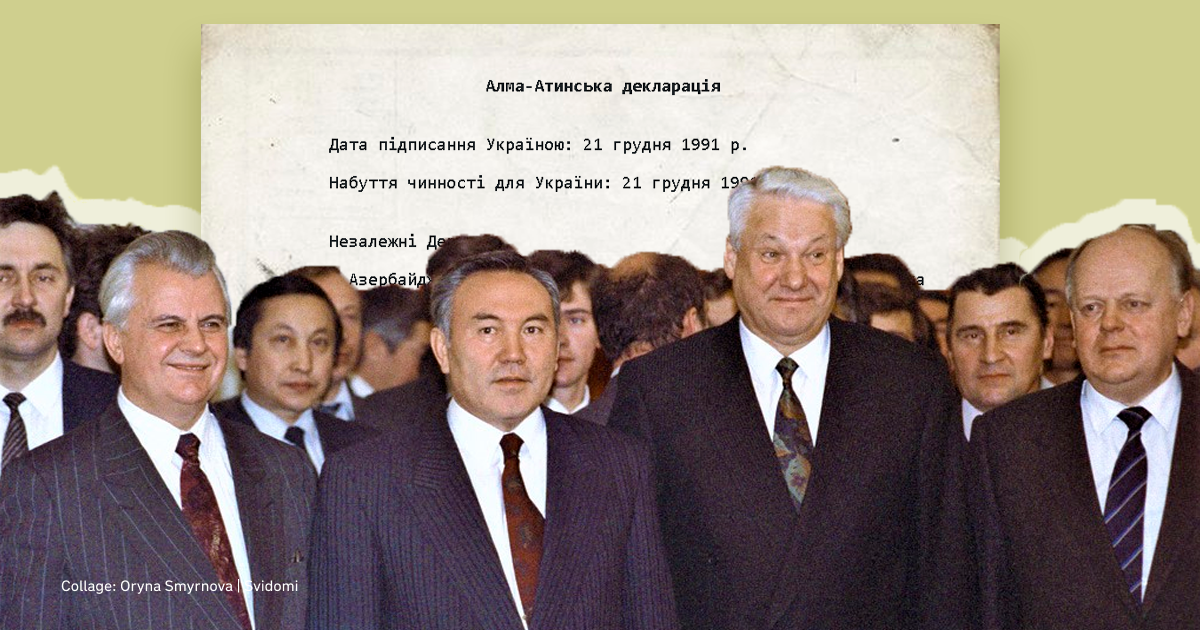
On the eve of the elections
Of course, Ukraine does more than sit around, too. Not all events are disclosed — and that's how it should be. Let's take a look at what is publicly available.
After the Orange Revolution, President Viktor Yushchenko appointed the acting head of the Security Service, Valentyn Nalyvaichenko, who shared the president's desire to take a fresh look at the Soviet past. Therefore, in early 2009, following a decree issued by Yushchenko, the service under Nalyvaichenko's leadership simplified access to previously secret documents of repressive Soviet bodies. This decision provoked resistance from old-school intelligence officers, not necessarily because of pro-Russian views, but because of an inert attitude to state secrets that must be protected regardless of the circumstances.
However, in the context of the Russian-Ukrainian confrontation, something else is more critical: gradually, access to information about Soviet crimes convinced Ukrainian society that it was not worth returning to Moscow's orbit.
Nalyvaichenko shared Yushchenko's attitude not only to the past but also to the Euro-Atlantic future. In 2007-2008, for the first and last time in its history, the Security Service issued White Papers with reviews of its activities to strengthen civilian control over it. This was foreseen in the NATO-Ukraine Target Plan for 2007.
In terms of more substantive steps, in 2009, Nalyvaichenko did not extend the protocol on cooperation with the Federal Security Service (FSS), which had been in place since 2000 and provided for the deployment of FSS officers at the Russian naval base in Crimea (Qırım). As a result, 19 Russians left Crimea in December 2009.
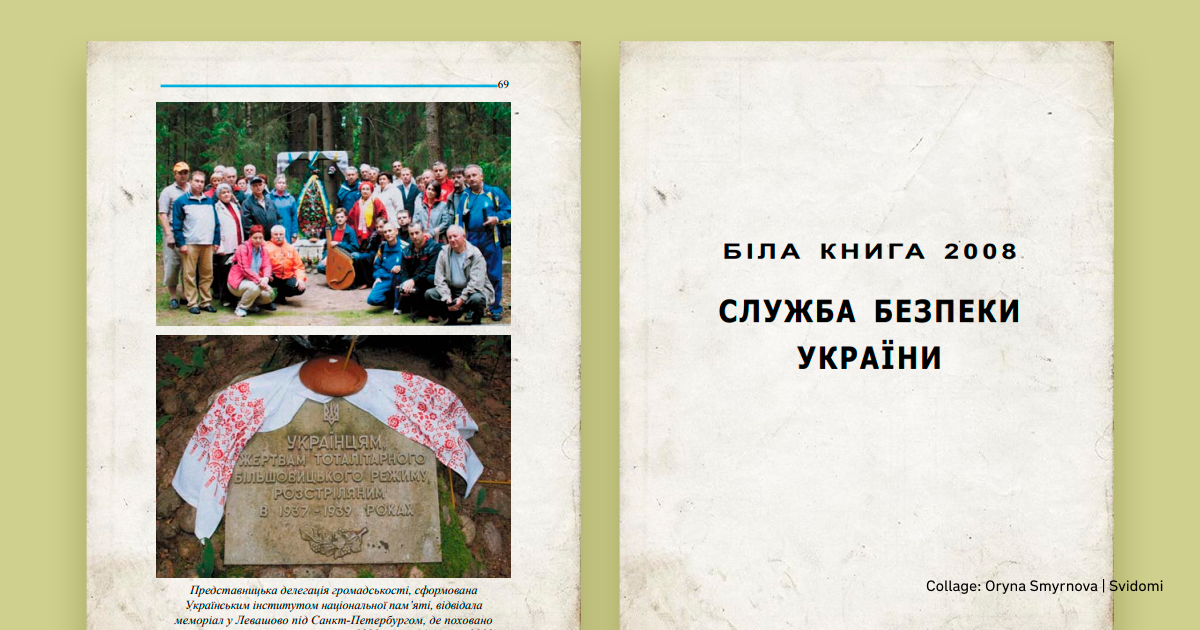
There's another example. The Moscow-based Elektropribor plant specialised in manufacturing components for the navy. In November 2009, the plant's management sent a subordinate to Crimea to steal blocks for the MP-405-1 jammer station from the 178th Ukrainian Navy weapons base. It is a Soviet product, not some secret Ukrainian development, so the station was in service with many Russian ships and the Ukrainian Navy corvette Prydniprovia. Therefore, Elektropribor primarily wanted to save money by stealing from Ukrainians rather than getting the latest technology.
The perpetrator arrived in Crimea and, with the help of residents, established contact with a serviceman of the 178th base. However, the latter informed the Security Service. On January 29, 2010, the Russian and his accomplice were detained. However, justice was not achieved — the Crimean courts dismissed the case, citing errors in the translation of the indictment made for the Russian citizen.
Even more interesting is the case of the Odesa region mentioned above. Near this region, there is an FSS organisational base in the Transnistrian region of Moldova. It is used to "train and coordinate personnel for illegal work in the region, especially in the south of Ukraine, " the Information and Security Service of the Republic of Moldova leadership states. The Transnistrian section of Ukraine's state border attracts collaborators trying to flee the country.
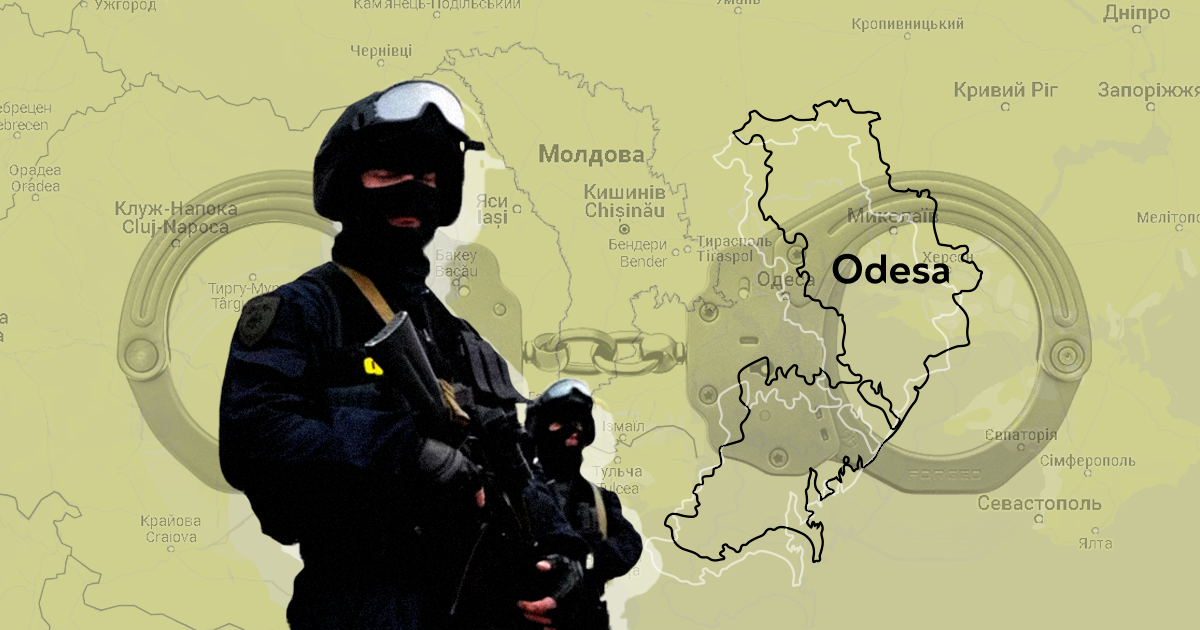
In October 2009, the FSS kidnapped a Ukrainian citizen in Tiraspol, allegedly a member of the Armed Forces. He was subsequently released, as the Russian secret service hoped to obtain from the man information that constituted a state secret of Ukraine. A meeting was arranged for January 27, 2010, on the territory of Ukraine, 14 kilometres from the Transnistrian section of the state border. The FSS group that was to conduct the meeting consisted of five people. Four more people were to cover the team. The head of the FSS Military Counterintelligence Department of the Operational Group of Russian troops in the Transnistrian region was in charge. The Security Service of Ukraine detained the first FSS group, consisting of five people. The rest of the Russians escaped. The SSU expelled four of them and banned them from entering Ukraine for five years. The most senior officer, Colonel Vladimir Noskov, was prosecuted for espionage and taken to Kyiv, where on January 29, Shevchenkivskyi Court sent him to a Security Service detention centre for the period of investigation.
Nalyvaichenko announced this publicly on February 2, 2010. The second round of the presidential election was scheduled for February 7.
However, the fact that Russian intelligence officers crossed the border by the dozens did not have enough impact on the mood of Ukrainians.
48% of the second round participants voted for Viktor Yanukovych, which gave the politician three per cent more than Yulia Tymoshenko. On February 14, the Central Election Commission officially announced the results. The Organisation for Security and Co-operation in Europe, the European Network of Election Monitoring Organisations and the Parliamentary Assembly of the Council of Europe observed the election and noted its democratic nature. On February 25, 2010, Yanukovych was inaugurated. James Pettit, a senior official at the US Embassy in Ukraine, hoped that "Yanukovych would be open to pragmatic cooperation with the United States". The prediction did not come true.

At the beginning of the century
Russian intelligence services were able to exert significant influence on the Ukrainian state and its security services not only during the Yanukovych era. As mentioned above, in 1992, the SSU and the predecessor of the FSS, the Russian Ministry of Security, signed the first agreement. In 2001, the then head of the Security Service, a KGB officer, Vladimir Radchenko, came to Moscow to sign another agreement. Its purpose was to "create real obstacles for international criminals". In practice, the cooperation between the FSS and the SSU extended beyond fighting against criminal groups. In 2002, the special services of Russia and Ukraine conducted a joint operation against the Central Intelligence Agency. As a result, two CIA employees who had been trying to obtain information about Russia's defence industry and its relations with Ukraine had to return to the United States.
Radchenko's predecessor in this position also came from the KGB system. Andrii Derkach did not achieve any significant positions in the State Security Committee. Still, he got to know Leonid Kuchma through their joint work at the Pivdennyi (Southern) Machine-Building Plant. That is why he was appointed head of the Security Service in 1998 as Kuchma's close associate. He remained so: although his relationship with the Russian special services remains unclear, his loyalty to the then-president is not questioned.
The following situation is indicative. It became public because Kuchma's office was bugged. On June 2, 2000, Derkach did not come to Kuchma empty-handed. The SSU had obtained a folder with dirt on Putin. It contained information about the newly elected Russian president's involvement in a money laundering scheme. At the time, this information still posed a danger to Putin's ratings, so the head of the Foreign Intelligence Service, Nikolai Patrushev, tried to buy all copies of these documents. However, Kuchma and Derkach decided not to hand them over to the Russians but only to make it clear that Ukraine had the damaging information.

At the same time, it remains unclear what role Leonid Derkach played in recruiting Oleh Kulinich, the former head of the SSU's Main Directorate in Crimea, to the SSU. In 1994, Kulinich graduated from the FSS Academy, which he entered during the KGB era, and then returned to work in Ukraine. He immediately joined the SSU, where he worked until Nalyvaichenko's full-fledged rise to power. Former deputy head of the SSU Oleksandr Skipalskyi claims that Leonid Derkach contributed to Kulinich's professional career. The latter has been under investigation as an FSS agent since 2022.
So what exactly did Leonid Derkach have to do with 25-year-old Kulinich? The SSU head's son, Andrii Derkach, also studied at the FSS academy in the early 90s and asked for help for a friend. It is the same Andrii Derkach who was elected as a People's Deputy in 1998, in 2020, was subject to US sanctions for participating in Russian efforts to influence the US election, and in 2022, was suspected of collaborating with the Russian General Staff of the Russian Federation by the SSU. His father died on the eve of the full-scale invasion, so we are unlikely ever to know what his role was.
Khoroshkovskyi's audit
But let's go back to the 2010 elections. After the peaceful transfer of power, Nalyvaichenko took a sick leave. So on March 1, 2010, his first deputy, the billionaire owner of the Inter TV channel, Valerii Khoroshkovskyi, began to perform his duties. Yushchenko had appointed him as the first deputy. Yushchenko 'transferred' the oligarch from the post of head of the Ukrainian Customs Service because of the conflict between Khoroshkovskyi and Tymoshenko. Within ten days, Yanukovych appointed the acting head of the SSU as the head of the Security service of Ukraine. The Party of Regions, the Communists, and the Lytvyn Bloc, supported by several opposition people's deputies, gathered enough votes. Soon after, Khoroshkovskyi occupied office 401 at 33 Volodymyrivska Street, hanging medallions with hetmans and ... orders of the Russian Empire on the wall of his office.
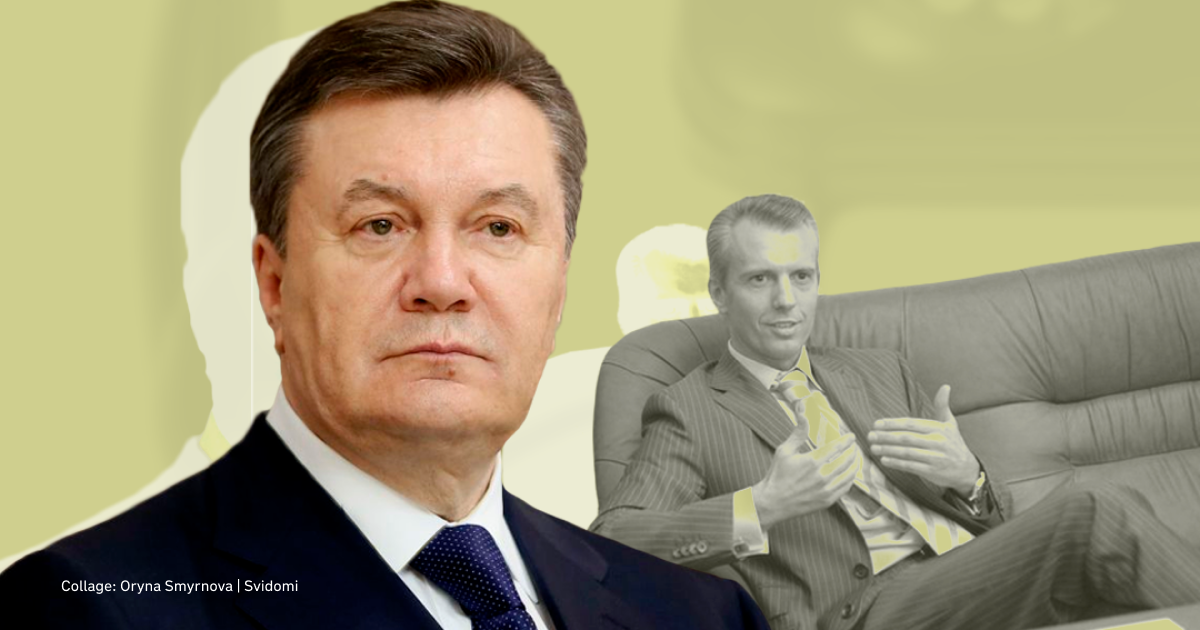
The rest of the story was not long in coming. On the morning of May 18, the rector of the Ukrainian Catholic University, Borys Gudziak, had his mobile phone ringing. It was the Security Service of Ukraine asking to see him. Gudziak agreed and invited them to the rector's office. In 20 minutes, a young service representative appeared in his office. He wanted to inform the rector that students should not be involved in protests. Okay, the rector hadn't done that before. However, the Security Service wanted Gudziak to sign a letter of notification. However, the letter had to be returned to the SSU after signing. Why? In case the rector wanted to post it on the Internet. Gudziak refused, so the upset official left with nothing, although the SSU later called several other employees of the Ukrainian Catholic University.
Is this situation dire? After all, SSU officers were always present at student protests in Ukraine. The head of the SSU Public Council, Volodymyr Horbulin, refused to comment on the incident, calling the SSU's actions in line with international practices and explaining the incident by the unprofessionalism of the official who visited Gudziak. However, Western countries did not see it that way.
At the end of May, US Secretary of State Hillary Clinton received a letter from Rector Gudziak describing the events. She was "agitated" by it. At the same time, the Konrad Adenauer Foundation, affiliated with the Christian Democratic Union Party of Germany, published a report on Yanukovych's first 100 days as President of Ukraine. The head of the foundation's Ukrainian office, Niko Lange, noted that the authorities immediately began to pressure the opposition, media and universities.
Meanwhile, on May 19, Khoroshkovskyi visited Odesa. And he was not the only one. The head of the FSS, Alexander Bortnikov, also came to the city. 14 years have passed since then, but he is still in office. On February 22, 2022, Bortnikov reported to Putin on pro-Ukrainian "sabotage groups" that had attacked Russian border guards. In 2010, he received a warm welcome in Ukraine. Then, he and Khoroshkovskyi signed a protocol to strengthen cooperation between the SSU and the FSS. In particular, according to this protocol, Russian special services could return to Russian military bases in Crimea. So they were gone from the peninsula — at least officially — for barely four months.
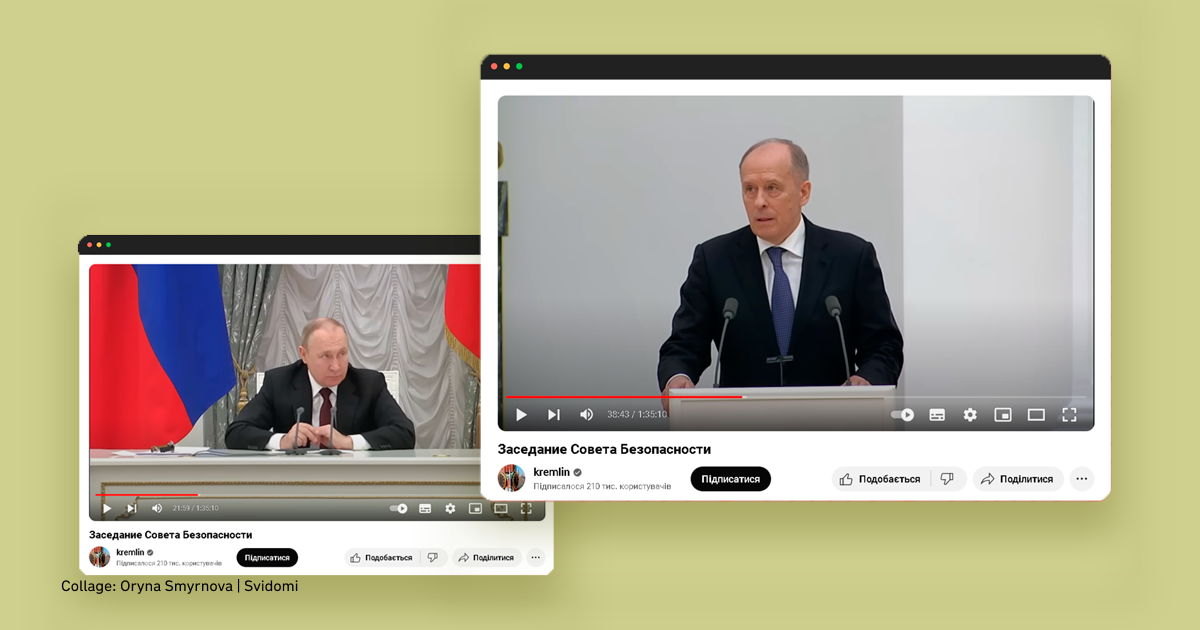
On May 31, the Kommersant Ukraine newspaper published an interview with Khoroshkovskyi. Before the interview, the journalist spoke to sources and learned that the Department of Counterintelligence had undergone a transformation: The First Directorate of the Counterintelligence Department stopped dealing with Russia and started focusing on the United States instead. Khoroshkovskyi commented, "Let's leave numerology aside — numbers do not reflect priorities". One could even have believed this if the First Main Directorate of the KGB had not had a department in charge of intelligence in the United States, a second in charge of intelligence in the United Kingdom, a third in charge of intelligence in West Germany, and so on, depending on the priority of the countries in the USSR's foreign policy. It is therefore not surprising that a few days later, Kommersant Ukraine published another article in which its sources claimed that the 'Russian' department had moved to the 4th position and its staffing reduced by 25%.
Another manifestation of this transformation is the fate of Colonel Noskov, an FSS officer detained in January and held in an SSU detention centre. In an interview, Khoroshkovskyi claimed he had already been sentenced as of May. However, the SSU chief refused to say whether the Russian would serve his sentence in Ukraine. Verifying his words is impossible — the court proceedings are classified. Svidomi asked the Service to open the veil but has not responded. Insiders claimed that in the summer of 2010, the SSU sent the convicted officer to Russia. One way or another, a Moscow Higher Border Guard School graduate of the KGB with the same name and surname now lives in Moscow and is photographed with the frontman of the Rammstein band, Till Lindemann.
The SSU scandals of the Khoroshkovskyi era did not end there. On June 21, the previously mentioned head of the Adenauer Foundation office, Lange, left Ukraine for work. On June 26, the German flew back to Boryspil. At that time, the political scientist had been working in Ukraine for four years in a row, so the border crossing procedure was quite familiar to him. However, this time, something went wrong. He was not allowed to leave the airport. Instead, border guards took him to a room with other foreigners waiting for the deportation. Lange spent a long time trying to get an explanation from the border guards and eventually found out that the SSU had banned his entry. So he called his influential friends for 10 hours on his day off, and only after midnight and the intervention of the German and Belgian ambassadors did his entry into the country get approved. As a result, border guards told political analysts that there had been a "misunderstanding".

The German government was dissatisfied with this response, and its spokesperson said he was irritated by the episode. The Ukrainian Foreign Ministry had to react. Kostiantyn Hryshchenko (then a minister, now a suspect in high treason) ordered his deputies to hold conversations with diplomats from the US, Russia, Germany and Poland about "the activities of non-governmental, non-profit foundations in Ukraine, coordinated by the respective embassies". Instead, on June 30, the German Foreign Ministry summoned the Ukrainian ambassador to Germany to criticise the actions against Lange again. Kyiv did not abandon its chosen line either: On June 30, Deputy Head of the Presidential Administration Hanna Herman said that the SSU had provided "strong arguments as to why they did what they did".
At the same time, Herman did not specify the arguments. They are still unknown, as the service did not explain its actions in 2010. She merely referred to an article of the law "On the Legal Status of Foreigners...", which provides for an extensive range of circumstances for entry bans, from "ensuring the security of Ukraine" to violating sanitary standards when crossing the border.
These events took place on the eve of two diplomatic events.
- On July 2, ahead of US Independence Day, Secretary Clinton visited Ukraine. She met with the leadership of the Ukrainian Foreign Ministry, Viktor Yanukovych, and the opposition, and then went to Kyiv Polytechnic University (KPI) to answer students' questions. In particular, students asked whether Clinton had discussed the activities of the SSU with Yanukovych and the need to release Khoroshkovskyi. The Ukrainian opposition and former US diplomats also urged her. The secretary of state denied discussing dismissals and appointments but confirmed that she had drawn attention to human rights in Ukraine during her meeting with the Ukrainian president. After she visited the KPI, Clinton also spoke with Ukrainian NGOs. UCU Rector Gudziak was also present at the meeting.
- On July 5, Foreign Minister Hryshchenko arrived in Germany for a visit. During his meetings with German Foreign Minister Guido Westerwelle, he tried to downplay the Lange situation. Hryshchenko said that "such things happen", while Westerwelle called it a "misunderstanding".

In other words, the authorities tried to distance themselves from the SSU's actions, which attracted too much attention from Western countries. This trend was deepening. In October, Hanna Herman, who had previously stated that the SSU's arguments in the Lange case were "very serious", said in a commentary to the German newspaper Welt that "Khoroshkovskyi does a lot of stupid things".
However, the head of the SSU was not dismissed at that time. On the contrary, in August, Yanukovych told German journalist Konrad Schuller that Khoroshkovskyi was "where he belonged". In October, it turned out that Schuller was being followed by the SSU, allegedly because he was not accredited.
Victoria Siumar, then head of the Institute of Mass Information, was present at Clinton's July meeting with NGOs. In September, Siumar said that the SSU had visited the concierge of her building.
These events indicate that the 'American' and 'German' counterintelligence departments of the Security Service launched activities against 'agents of Western imperialism'. To better understand the logic of these operations, we should refer to the KGB Lexicon, which became publicly available in 2002. According to it, "Ideologicheskaya diversiya — ideological sabotage is a complex of propaganda and provocation measures undertaken by capitalist states” which involves “the mass information media and intelligence measures with the object of undermining the ideological foundations of the socialist social order, and undermining the moral and political unity of the peoples of the socialist countries by spreading all manner of lies and slander”.
New public information about the activities of German intelligence in Ukraine allows us to critically evaluate the following conclusions: Bruno Kahl, President of the German Federal Intelligence Service, arrived in Kyiv on the eve of the full-scale invasion, so on February 24, when leaving Ukraine, he was forced to stand in traffic jams, feeding on sausage and chocolates. The decision to fly to Ukraine on February 23 can be explained by a desire to demonstrate support at a critical moment or by not taking intelligence information about the invasion's imminence seriously.

Thus, during the first six months of Khoroshkovskyi's leadership, the SSU acted against public figures. Did this affect cooperation with the US intelligence services? It continued in areas that were core to US foreign policy after the end of the Cold War: counter-terrorism, cyber threats, and non-proliferation of weapons of mass destruction. Nalyvaichenko discussed these topics with his American colleagues during his visit to the United States in 2008.
While some Security Service officers extracted information from Siumar's concierge, others cooperated with the US Federal Bureau of Investigation.
The case in question was Operation Trident Breach. It was aimed at a group of hackers living in Ukraine and Russia who attacked bank accounts worldwide, including American ones. In June 2010, a group of FBI officials travelled to Ukraine to establish cooperation with the SSU. It was probably the first time the Federal Bureau had ever visited Koncha Zaspa, as the negotiations, accompanied by large quantities of vodka, took place in Khoroshkovskyi's estate.
Nevertheless, they worked out a plan. FBI officer Jim Craig went to Donetsk because that was where the leaders of the hacker group lived. But there he faced problems — the local Security Service department kept postponing the arrest. When the special services eventually visited the home of Viacheslav Penchukov, one of the hacker group's leaders, he was not there. Insiders believe that the information about the detention was passed to the criminals by Oleksandr Khodkakovskyi (in 2010, commander of the special forces of the SSU Office in the Donetsk region; since 2014, one of the leaders of the illegal armed group 'DNR'). But it was not only the SSU that had framed the FBI. In Russia, the FSS also promised to detain Maxim Yakubets, who laundered money for hackers. Currently, Yakubets lives quietly in Russia under FSS protection, and in 2017, he married the daughter of a veteran of the FSS special forces.

In 2011, SSU, headed by Khoroshkovskyi, continued to work against European countries. The case of the Czech intelligence service is indicative. On May 13, the service announced the exposure of two diplomats of the Czech Republic who received secret information from an employee of a defence enterprise and a servicewoman of the Ministry of Defence of Ukraine. They even published a video of the operation! However, Prague was sceptical about this case.
The fact is that at the end of 2010, the Czech Republic granted political asylum to former Ukrainian Minister of Economy Bohdan Danylyshyn, who was facing criminal proceedings in Ukraine. So, for Czech Foreign Minister Karel Schwarzenberg, it looked like the Ukrainian leadership was taking revenge with the help of the SSU. There is no connection between these issues, said Oleh Voloshyn (in 2011, director of the Information Policy Department of the Ukrainian Foreign Ministry, now a suspect in high treason). Can we believe him?
The episode of cooperation between Defence Attaché Zdeněk Kubíček and an employee of the Ukrainian Civil Aviation Plant No. 410 is not classified, meaning that we can study it. Publicly, the SSU stated that the employee had passed on information to the Czech about "Ukrainian developments in the field of armoured vehicle engineering and satellite navigation for Oplot tanks, the perspectives of the AN-70 and AN-178 aircraft development programmes, and the development of rocket and space systems carried out at the Pivdenne Design Bureau for the Russian side". Could an employee of the Civil Aviation Plant be aware of information about missile development at another enterprise? Nobody knows since the prosecution came to court in a different form: the Ukrainian sent Kubíček a commission agreement for the repair and modernisation of An-32 aircraft for the Indian Air Force. This contract did not contain any secret information, but it did contain classified information. During the investigation, the plant employee did not deny sending the contract in January 2010. He believed that the contract provision would encourage the Czech Republic to order services from the plant. Had this happened, the Ukrainian would have received bonuses as the head of the contract support group of the foreign economic relations department.
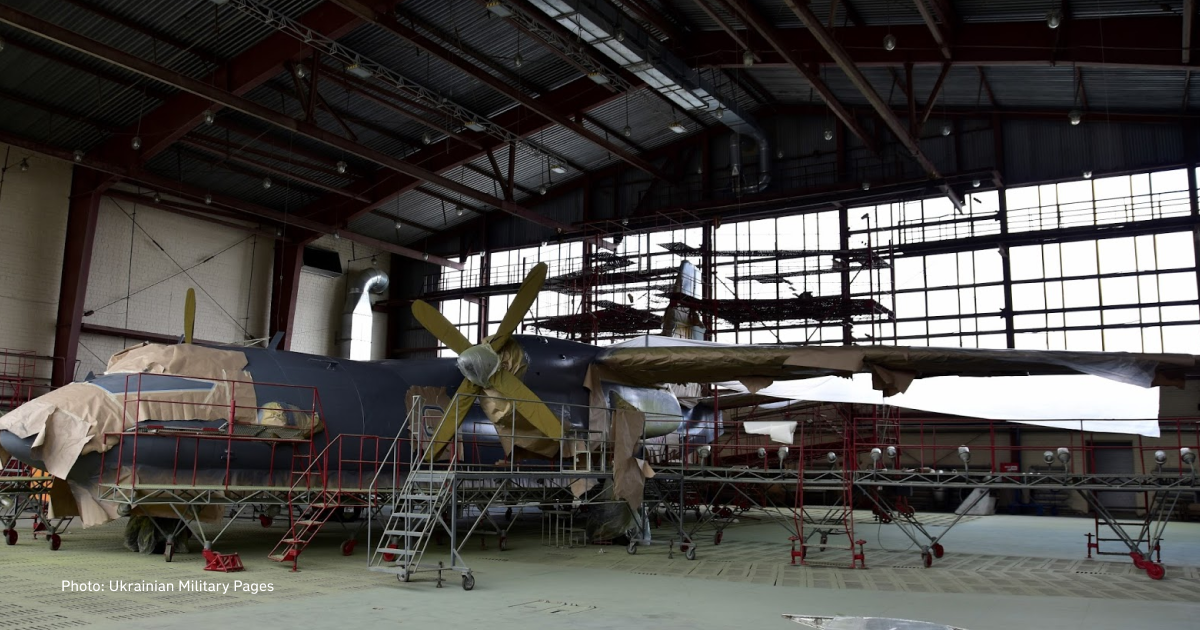
In December 2009, SSU counter-intelligence officers conducted operational activities " which revealed information about the transfer of military-technical information". However, not all information of this nature is unique or secret. In addition, the defendant's position in the foreign economic relations department of the defence plant involved finding clients. A seller who wants to interest a buyer will provide him with some information about the product. On top of that, the criminal case against the Ukrainian was opened in April 2011, meaning that the leak had been awaiting activation for a year and a half.
The criminal proceedings against former Minister Danylyshyn became public in August 2010. In October 2010, Czech law enforcement officers detained him, as Ukraine put the former official on the international wanted list on suspicion of embezzlement in public procurement. In January 2011, the Czech Republic granted Danylyshyn political asylum. Thus, the Security Service decided to use the existing material of operational measures only after the Czech Republic decided to protect the former minister. In 2013, Ukrainian law enforcement closed the proceedings against Danylyshyn, but by that time, the former aircraft plant employee had already received a four-year prison sentence.

KGB in Putin's defence
In January 2012, Khoroshkovskyi lost his post as head of the SSU, but his successors kept up the previous style of work. During special service officer Igor Kalinin's tenure (February 2012 - January 2013), the most notable internationally significant SSU operation was against members of the Ichkerian resistance movement. In early January 2012, an explosion detonated on Tyraspolska Street in Odesa as a result of an improvised explosive device. Chechen Adam Osmayev was in charge of the production.
Starting in December 2011, protests over fraud during the parliamentary elections took place in Russia. Presidential elections were scheduled for March 2012. At that time, Vladimir Putin was not the president but the prime minister. Accordingly, the task for Russian political technologists was not standard — to return Putin to the Kremlin despite the protests.
Therefore, they resorted to unconventional approaches. On February 27, Channel One announced that the FSS and the SSU had jointly prevented an attack against Putin. Allegedly, a group of Chechens was operating in Odesa to manufacture explosives for assassination. However, no proof of this existed. The products of Osmayev's group were too small for such a task. After the election and Putin's victory, the Kommersant Ukraine newspaper, which had previously cited sources in the SSU, reported that the only evidence against Osmayev was a "sincere confession" that had been beaten out of him. In October 2014, when the political pressure disappeared, Ukrainian prosecutors dropped the terrorism charges. As a result, the court found Osmayev guilty of illegal handling of explosives. When the Chechen was released, he joined the Dzhokhar Dudayev Battalion and has been defending Ukraine in the war against Russia ever since. However, the FSS persisted in its attempts to kill Osmanov in Ukraine, in particular by the hands of SSU Major General Valerii Shaitanov.

Kalinin worked as the head of the SSU for one year — in January 2013, Oleksandr Yakymenko took over this role. He had made a name for himself long before his appointment. In 2006, while communicating with his former classmates on an online forum, he wrote that he was currently "working in Donetsk for the KGB". Indeed, Yakymenko served in the Donetsk Department of the SSU at that time, apparently two interchangeable terms for him. It is not surprising that, following the instructions of his FSS colleagues, the head of the SSU created a special unit to develop, print and distribute compromising material against opposition politicians and civil society activists across Ukraine. In February 2014, the head of the SSU resigned, moving to Crimea and later to Russia. He is currently in charge of repressive bodies in the temporarily occupied part of the Kherson region.
A complicated legacy
During the last week of February, Yakymenko was not the only one to move to Crimea. James Clapper was the Director of National Intelligence of the United States at the time, meaning that he presented all the country's intelligence services to the president. "We'd been warning [in the Daily Presidential Briefing] for several days in February about Russian soldiers without insignia positioning themselves around Crimea,” he recalls. This information did not reach Ukraine in full. It was only on February 27 that the role that regular Russian troops would play in the seizure of Crimea became apparent. This happened in the aftermath of the Russian special forces occupying the Crimean parliament on the night of February 26.
Russia managed to occupy Crimea during the first part of March. At the same time, the Kremlin was also massing forces along the eastern section of the Russian-Ukrainian border, and the likelihood of an invasion by Russian regular troops in this direction was growing — at least, that was the US military's assessment of the situation. On March 26, Supreme Allied Commander Europe, Philip Breedlove, reported to the US Congress that Ukraine needed more support, sanctions, and assistance. Instead, the US political leadership was much more cautious assessing the situation, avoiding promises of assistance. The same applied to the exchange of information. The US intelligence services believed the Kremlin maintained control over the Ukrainian special services. If Russia gained access to such data, it would understand how the United States obtained it.
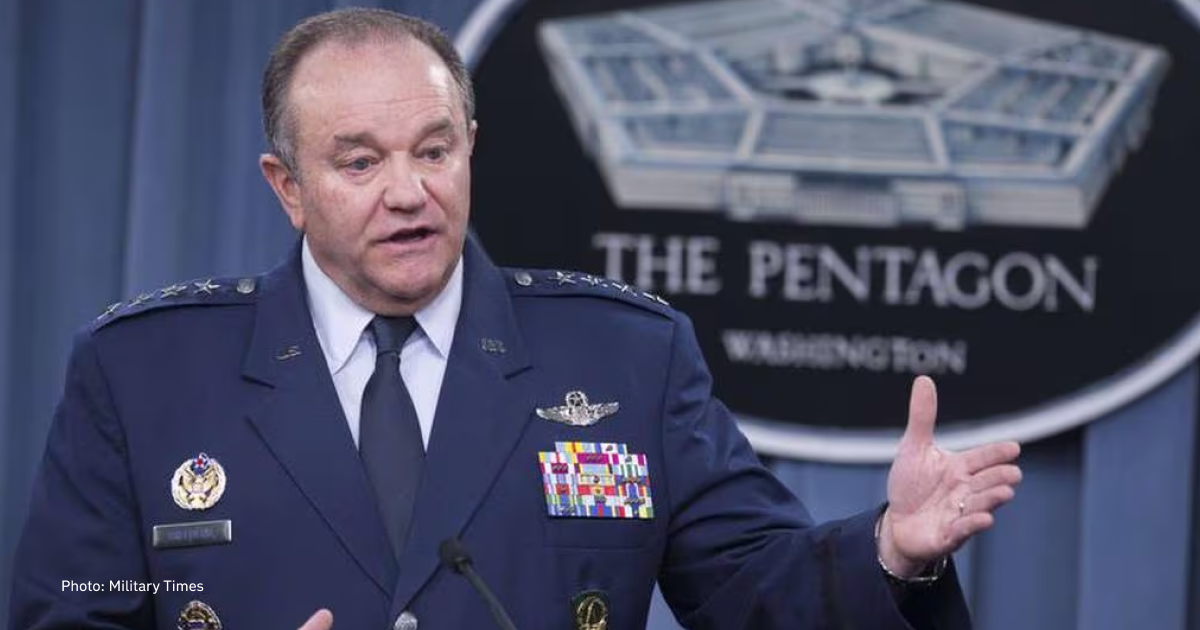
Nevertheless, Breedlove continued to advocate for more support for Ukraine, at least through information. On April 10, his headquarters even published satellite images of Russian army camps near the border with Ukraine. Now, it is a common practice, but in 2014, such public steps were rarely taken. Eventually, US President Barack Obama agreed with the arguments of military and diplomatic officials. According to the memoirs of then-CIA chief John Brennan, after a meeting of the US National Security Council, Obama said: "This is not the time to provide lethal weapons. However, we can provide other types of military assistance while maintaining international and economic pressure on Moscow."
At the same time, the issue of the reliability of intelligence channels remained relevant. Therefore, on April 12-13, Brennan travelled to Kyiv and met with Prime Minister Arsenii Yatsenyuk and his first deputy, Vitalii Yarema, to discuss the setup of such communication channels. In July, Michael Vickers, the US Under Secretary of Defense for Intelligence, also visited Ukraine and discussed cooperation with the heads of all key services.
There was a reason why foreigners' trust in the SSU was low.
They had information about the events of the previous three years in Ukraine. But even if the Armed Forces had had all the information they could have had at the end of February, it would have only partially improved the situation. The foreign policy analysis theory has two basic categories: 'aspirations' and 'means'. In the spring of 2014, the country's leadership, except for acting President Oleksandr Turchynov, was not ready for an armed confrontation with Russia. The means were exhausted by poor provision and theft. Information will not help to achieve unclear goals by non-existing means.

The situation is different now. The Western press acknowledges that the Security Service of Ukraine can eliminate dozens of collaborators month after month, disrupting Russian logistics, both on land and at sea. These measures have significant consequences. Thanks to the development of the SSU's maritime programme, the Russian navy cannot maintain the blockade. In January 2024, Ukraine exported record volumes of grain since the full-scale invasion. In other words, Ukraine has managed to block Russia's strategy on the Black Sea, i.e. the plan to achieve and maintain superiority over the enemy. The SSU's role in this is significant, although not exclusive — the SSU's intelligence colleagues have also contributed to the fight for the Black Sea.
The SSU employs approximately 27-31,000 people. It is incorrect to compare this number with Western organisations, as the SSU has a broader range of responsibilities. At the same time, it's certainly a large number of people.
Among them are employees lacking values or competencies, as the Bihus.Info investigation has revealed. Will these facts affect relations between Ukrainian and Western intelligence services? We know the Ukrainian nation is endangered. Western intelligence services have all the information they need to draw the same conclusion. During the Cold War, NATO allies committed far worse violations of the principles underpinning the Euro-Atlantic partnership. Suffice it to recall that one of the founding members of NATO was authoritarian Portugal. Therefore, it is unlikely that the actions of 'SSU Ihor' and his colleagues will significantly affect relations between the Security Service and its foreign counterparts. At the same time, unprofessionalism and a lack of principles can enable corruption, making SSU officials more vulnerable to Russian influence.


